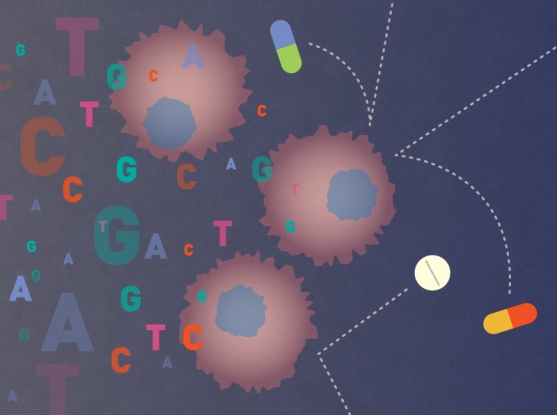 The five year, $50 million project will study thousands of drug resistant tumors and draw on Watson’s computational and machine learning methods to help researchers understand how cancers become resistant to therapies. The anonymized data will be made available to the scientific community to catalyze research worldwide.
The five year, $50 million project will study thousands of drug resistant tumors and draw on Watson’s computational and machine learning methods to help researchers understand how cancers become resistant to therapies. The anonymized data will be made available to the scientific community to catalyze research worldwide.
While a growing number of cancer treatments can hold cancers in check for months or years, most cancers eventually recur. This is in part because they acquire mutations that make them drug resistant. The development of drug resistance is a major cause of nearly 600,000 annual cancer deaths in the United States alone(1). In a limited number of cases, scientists have discovered the cause of drug resistance, allowing the development of new drugs to overcome resistance. In most cases, however, the causes of drug resistance are not fully understood.
To help understand how cancers become resistant to specific therapies, Broad Institute will generate tumor genome sequence data from patients who initially respond to treatment but who then become
This new partnership is expected to help lay a new foundation for understanding the basis of drug resistance in cancer — especially the genetic mechanisms observed in patients — and accelerate research across the cancer community to turn knowledge of resistance mechanisms into therapies.
«Defeating cancer involves playing a
«The Broad Institute is leading the industry in areas of cancer biology, genomics and computational biology, and we are proud to bring Watson’s data prowess to help researchers learn more about one of most important medical challenges that too often stands in the way of effective cancer treatment," said John Kelly III, senior vice president, Cognitive Solutions and IBM Research. «Watson is already being used in the clinic to aid clinicians in cancer care. Our hope is that this effort, if successful, could eventually lead to significant breakthroughs. Someday, patients who would not otherwise have options in their battle against cancer may have reason for hope.»
«Currently, cancer researchers have access to genomic information from only a few hundred


